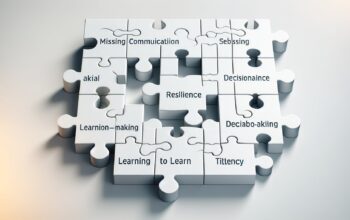The framework is one thing. But does it actually work? Let me show you real examples of people who built competence outside the system and succeeded.
Not theoretical examples. Not carefully curated success stories. Just real people doing real things.
The Designer Who Taught Herself
I know a designer who never went to design school. Started by redesigning websites for fun. Posted her work online. Got feedback from real people, not teachers. Iterated based on what users actually responded to, not what design principles said she should do.
After two years of that, she had a portfolio so strong that design agencies were fighting over her. They didn’t care that she didn’t have a degree. They cared that her work was good.
She had built competence. She could see problems and solve them. She understood not just design principles but how to apply them in ways that actually worked.
And she learned it by doing, not studying.
The Writer Who Blogged Into an Author
Another person I know started writing on a blog. No journalism degree. No creative writing degree. Just writing about things they cared about, publicly, getting feedback from readers.
Years later? Published author. Not because they had credentials. But because they’d spent years learning how to write in public, how to be clear, how to make people care about what they’re saying.
The blog was their real education. The published book was just the credential that came after competence had already been built.
The Entrepreneur Who Never Finished College
Dropped out junior year to work on a business idea. Lost money on the first three attempts. Fourth one gained traction. Learned how to talk to customers, how to prioritize what matters, how to make decisions with incomplete information.
When they eventually sold that business, nobody cared about the missing degree. They cared about what the person had built and what it was worth.
Competence made the credential irrelevant.
The Pattern
All these people have something in common: they didn’t follow the prescribed path. They built something. They got real feedback. They iterated. They succeeded.
And here’s what’s interesting: they all would have *eventually* gotten credentials or achieved status anyway. Because once you have real competence, credentials follow. The flow goes competence to credentials, not the other way around.
But they didn’t have to wait for the credentials to start building the competence. They built first. Credentials came later.
What Makes These Stories Work
These people had a few things in common:
They chose something they actually cared about. They weren’t optimizing for credentials or status. They were solving a problem or creating something they believed in.
They had access to feedback. They put their work out publicly. They listened to how it landed with real people.
They iterated relentlessly. Their first version wasn’t good. Neither was their tenth. But by their hundredth, they were exceptional.
They didn’t wait for permission. They didn’t wait for a degree or a credential or someone to tell them they were good enough to start. They started anyway.
Why This Still Works Despite the System
The credential system filters at the front door. If you can’t show a credential, many doors don’t open.
But if you build something good enough, you don’t need to go through the front door. You can create your own door. You can show your work directly. You can demonstrate competence so clearly that credentials become optional.
The designer’s portfolio was the credential. The writer’s published work was the credential. The entrepreneur’s successful business was the credential.
They replaced the traditional credential with demonstrated capability. And in every case, that was stronger.
Not Everyone Can Do This
I’m going to be honest: this path is not equally accessible to everyone. It requires time to build. Money to sustain yourself while building. Often, networks or luck that opens doors.
Not everyone has that privilege. And that’s exactly why the credential system exists: it’s supposed to create a fair filter where privilege doesn’t matter as much.
Except it doesn’t work that way. Credentials still correlate with privilege. Getting a degree requires money and time that not everyone has.
So the system doesn’t solve the problem it claims to solve. And it also doesn’t prevent the practical path from working for those with the resources and luck to try it.
What Comes Next
So we’ve looked at what’s broken. We’ve seen that practical skills matter. We’ve seen real examples of people who’ve succeeded despite the system.
Tomorrow, we’re going to put it all together. A roadmap. How to think about your own path. How to build both the credentials the system demands and the competence that actually matters.







